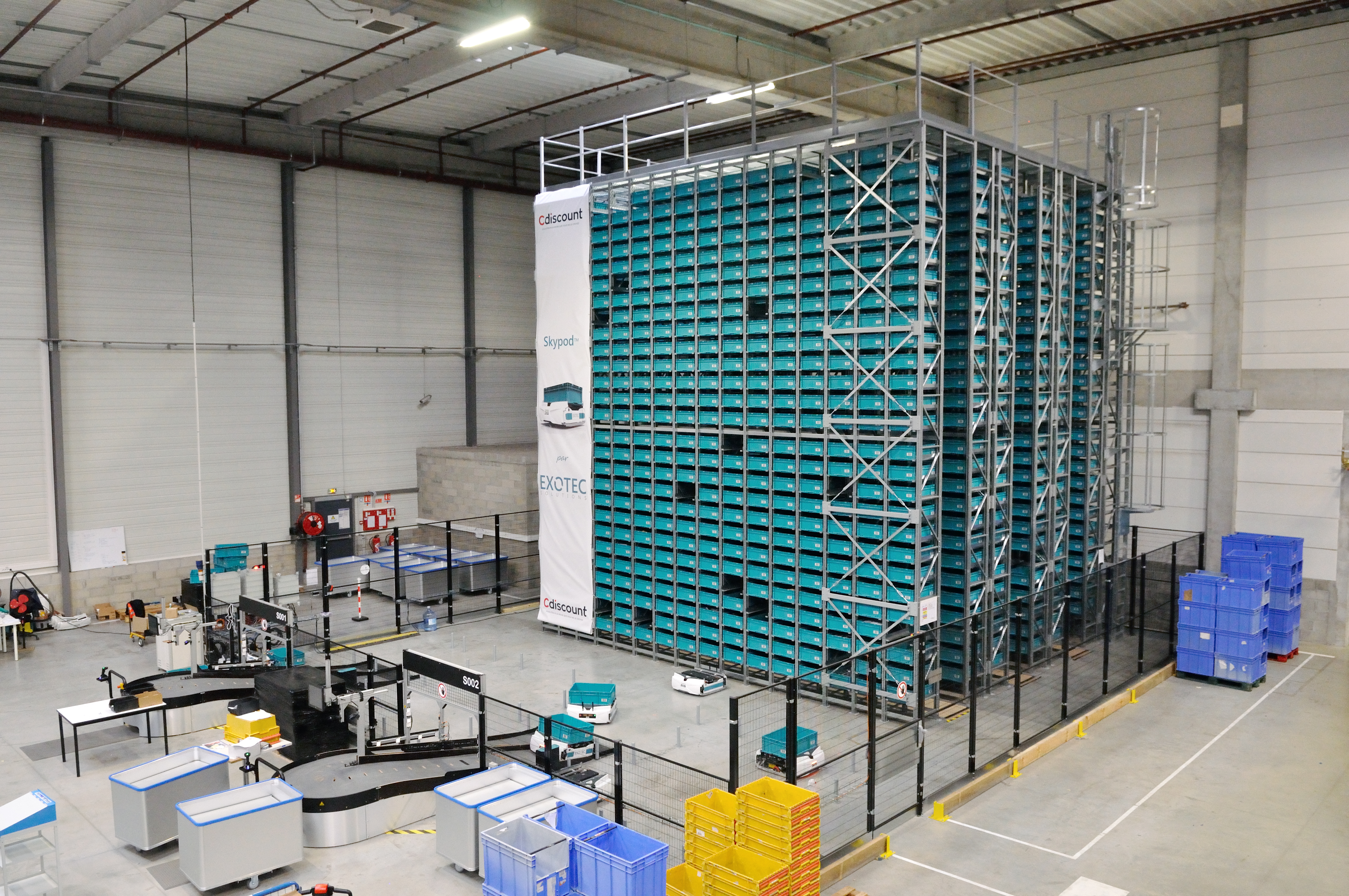Fundings & Exits
Auto Added by WPeMatico
Auto Added by WPeMatico
While Henrique Dubugras and Pedro Franceschi were giving up on their augmented reality startup inside Y Combinator and figuring out what to do next, they saw their batch mates struggling to get even the most basic corporate credit cards — and in a lot of cases, having to guarantee those cards themselves.
Brex, their new startup, aims to try to fix that by offering startups a way to quickly get what’s effectively a credit card that they can use without having to personally guarantee that card or wade through complex processes to finally get a charge card. It’s geared initially towards smaller companies, but Dubugras expects those startups to grow up with it over time — and that Brex is already picking up larger clients. The company, coming out of stealth, said it has raised a total of $57 million from investors including the Y Combinator Continuity fund, Peter Thiel, Max Levchin, Yuri Milner, financial services VC Ribbit Capital and former Visa CEO Carl Pascarella. Y Combinator Continuity fund partner Anu Hariharan and Ribbit Capital managing partner Meyer Malka are joining the company’s board of directors.
“We want to be the best corporate credit card for startups,” Dubugras said. “We’re don’t require a personal guarantee or deposit, and we can give people a credit limit that’s as much as ten times higher. We can get you a virtual credit card in literally 5 minutes, versus traditional banks, in which you’d have to personally guarantee the card and get a low limit and it takes weeks to approve.”
Startup executives go to Brex’s website, sign up, and then put in their bank account info. They then use that banking information to underwrite the card, with the idea being that the service can see that the start has raised millions of dollars and doesn’t have the kind of wild liability that those banks think they might have given how young they are. Once the application is done, companies get a virtual credit card, and they can start divvying up virtual cards with custom limits for their employees. The company says it has attracted more than 1,000 customers and is now opening up globally.
The cards are designed to have better spending limits, and also offer company executives more granular ways to assign those limits to employees. The cards have to be paid off by the end of the month, and the rolling balance for those cards is dependent on the amount of capital each startup has available. The total limit available is, instead, a percentage of the company’s cash balance available. So rather than having to go through the process of getting approved for a card, the service can look at how much money is in a startup’s bank account and adjust the spending limit for all those cards accordingly.

Another aspect is automating the whole expense and auditing process. Rather than just going through typical applications like Concur and inputting specifics, card users can send a text message of a receipt through Brex associated with each transaction. Users will just get a text message about a charge — like a cup of coffee for a meeting with a potential business partner — and reply to that text with a message of the receipt to log the whole process. Everything is geared toward simplifying the whole process for startups that have an opportunity to be a bit more nimble and aren’t bogged down with complex layers of enterprise software. Each expense is looped in with a vendor, so executives can see the total amount of spending that’s happening at that scale.
The ability to have those dynamic spending limits is just one example of what Dubugras hopes will make Brex competitive. Rather than slotting into existing systems, Brex has an opportunity to recreate the back-end processes that power those cards, which larger institutions might not be able to do as they’ve hit a massive scale and get less and less agile. Dubugras and Franceschi previously worked on and sold Pagar.me, a Brazilian payments processor, where they saw firsthand the complex nature of working with global financial institutions — and some of the holes they could exploit.
“It’s not like we’re two geniuses that came up with a lot of things that no one came up with,” Dubugras said. “Implementing them with third-party processors is hard, but we didn’t have any of [those integrations], so we can rebuild them from scratch. It’s hard for banks to throw money at a problem and build those tools. We’ve rebuilt the way that these things work internally — they’d have to change fundamentally how the system works.”
While there are plenty of startups looking to quickly offer virtual cards, like Revolut’s disposable virtual card service, Brex aims to be what’s effectively a corporate card — just one that’s easier to get and works basically the same as a normal card. Users still have to pay off the balance at the end of the month, but the idea there is that Brex can de-risk itself by doing that while still offering startups a way to get a card with a high limit to start paying for the services or tools they need to get started.
Powered by WPeMatico
About one year ago, a note from a CEO thanking his employee for using sick days to take care of her mental health went viral. It was a reminder to Alyson Friedensohn of what she wants to accomplish with Modern Health, the emotional health benefits startup she founded last year with neuroscientist Erica Johnson.
“We want that to be normal. We want the email she sent to be normal, to be able to be that open,” Friedensohn tells TechCrunch.
Modern Health, a Y Combinator alum, announced today that it has raised $2.26 million in seed funding for hiring, accelerating the development of its healthcare platform and growing its network of therapists, coaches and other providers. Offered as a benefit by companies, Modern Health’s services are meant to improve employee well-being and retention rates. The round was led by Afore, with participation from Social Capital, Precursor Ventures, Merus Capital, Maschmeyer Group Ventures, Y Combinator and angel investors.
Friedensohn, Modern Health’s chief executive officer, says several employers have already signed up for its platform, which includes services like counseling and career and financial coaching. One of its newest customers, human resources startup Gusto, hit a 43% utilization rate of its services, including connecting employees to coaches and therapists, among registered users just four days after it began offering the platform.
The startup is especially proud of the fact that Modern Health’s team is currently all female and Friedensohn wants to parlay their points of view into services that address issues affecting women. For example, the platform already works with providers who specialize in postpartum depression and infertility.
“People don’t talk about what working moms are dealing with and countless things like that,” says Friedensohn, who previously worked at health tech companies Keas and Collective Health. “People don’t want to talk about it because they are worried it will jeopardize their careers, but it makes a difference.”
Several other tech startups are working on mental health care platforms for employers to offer as a benefit, including Ginger.io, Lyra Health and Quartet, which have all have received significant amounts of funding from prominent investors. The space is especially important, given the alarming rise in the United States’ suicide rate and the fact that about 6.7% of all adults in the U.S. have experienced at least one major depressive episode.
One of Modern Health’s priorities is to reach employees before they hit a crisis point. Since many people are daunted by the idea of therapy, the platform connects them to coaches instead to focus on specific issues, like their careers, or overall emotional wellbeing. This helps referrals, Friedensohn notes, because it makes the service feel more approachable.
“They can say to friends, I have this awesome Modern Health coach, versus saying I have a therapist, so it’s way easier for people to engage,” she says.
Modern Health also makes its services more accessible by offering several ways to use the platform: texting, video calls or, for people who don’t want to talk to a therapist or coach yet, meditation apps and other digital tools created by the company. Friedensohn adds that it’s not uncommon for people to write essays on their sign-up forms when registering because it’s the first time they’ve been able to unload their problems.
“People like that it’s coaching,” she says. “What we found is that by focusing on that point, the biggest thing is lowering the barrier to entry, so that people who are depressed are also comfortable reaching out.”
Powered by WPeMatico
Hello and welcome back to Equity, TechCrunch’s venture capital-focused podcast where we unpack the numbers behind the headlines.
This week was something of a first for the crew, twice. First, we had two guests on the show, and, also, we only made it through two and a half topics. The former is good, the latter is, well, we’ll see.
So, this week Matthew Lynley and I were joined by David Chao, co-founder and general partner at DCM, and Steve Vassallo, a general partner at Foundation Capital. Points to both for being guinea pigs.
Heading into our first topic I’m sorry to inform you that, at least in terms of Equity, scooters are the new Uber. So, we wound up talking about both this week. We started with the fact that Bird is raising new capital at an even more staggering valuation than before ($2 billion!), and that Lime is working to raise a truckload of capital itself. (Reports vary, but it’s probably a $250 million equity round at around a $750 million valuation. There may also be some debt in the mix for Lime. More when we lock that down.)
And, as Chao’s firm is an investor in the space, we had even more to chew on.
Next up we dug into the massive new Opendoor round. The firm’s new $325 million puts it into a solid position to help people sell their houses. Which markets are the best fit was something for us to unspool, along with public market comps, such as they are. But most critical, at least in my view, was the idea of risk. On that point Vassallo made a reasonable argument regarding stress testing. We’ll see.
And finally, we touched on Meituan’s impending IPO, and how it came to be.
Thanks for sticking with Equity after all this time. We’ll be back next week with another round of chatter about the latest, greatest and dumbest that tech has to offer.
Equity drops every Friday at 6:00 am PT, so subscribe to us on Apple Podcasts, Overcast, Pocket Casts, Downcast and all the casts.
Powered by WPeMatico
While brand safety and fraud prevention have been big topics in the online ad industry over the past couple years, Cheq CEO Guy Tytunovich argued that “first generation solutions for ad verification” aren’t good enough.
The problem, Tytunovich said, is that existing products use sampling to alert advertisers to issues “after the fact.” Compare this to credit card fraud — if the credit card company only alerted you long after the fraud had occurred, “You’re not going to be happy with that kind of answer.”
At Cheq, Tytunovich and his team have developed an approach that uses artificial intelligence to deliver what he calls “autonomous brand safety” — the idea is that when an ad is being served, Cheq can detect whether it might be a fraudulent impression that will only be seen by bots, or if it might show up next to content that a brand doesn’t want to be associated with. If there’s an issue, Tytunovich said, “We block [the ad] from being served in real time.”
Beforehand, advertisers set up their own ad placement guidelines, and afterwards, they can see the reason why individual ads didn’t get served.
Cheq is announcing that it has raised $5 million in Series A funding led by Battery Ventures . Tytunovich said that 80 percent of the Cheq team consists of developers, and that most of the funding will go towards further product development.
If the Cheq approach really is so much better, why aren’t bigger, better-funded companies doing the same thing? Tytunovich pointed to his experience, and his team’s experience, in the Israel Defense Forces, where he said “they teach you to compensate for a lack of scale, of manpower, by focusing on automation and speed.”
Similarly, Tytunovich said that at Cheq, “the name of the game is speed.”
“A lot about our underlying technology lies around the speed of the data crunching,” he added. “We look at around 700 data parameters per impression … We need to be able to take all that data, analyze it and do it in real time.”
Cheq has offices in Tokyo, New York and Tel Aviv. Tytunovich said it’s currently focused on the American and Japanese markets — customers listed on the Cheq website include Coca Cola, Turner and Mercedes-Benz. Update: A spokesperson clarified that those companies are listed on the Cheq website because Cheq participated with them in The Bridge program.
Powered by WPeMatico
Influential announced today that it has raised $12 million in Series B funding.
The funding came from existing investors Capital Zed, ECA Ventures, Paradigm Talent Agency, ROAR and Tech Coast Angels, as well as from Hollywood agency WME .
Just a couple weeks ago, Influential said it was working with (and had raised money from) WME. The agency is the first to try out a new Influential product called Talent Pro, which gives agents access to social data around a broader pool of talent.
Influential founder and CEO Ryan Detert said the product will allow WME — and, in the future, other agencies — to sweeten endorsement and promotional deals with more data and to “take an A-list celebrity… and now surround that person with 10 lookalike influencers who are not celebrities themselves.”
One of Influential’s big selling points is its use of artificial intelligence (it’s a developer partner with IBM Watson) to help brands and marketers find influencers who would be a good fit for their campaigns. However, Detert acknowledged that selling access to social media influencers is starting to feel overhyped — as he put it, “People think of influencer marketing sometimes as a four-letter word.”

But in Detert’s view, influencer marketing is just one “tactic” that Influential supports: “We consider ourselves more of social intelligence and activation company.”
And in fact, Influential already offers a social intelligence product that helps customers get a broader understanding of things like the broader competitive landscape.
Detert also said Influential is working to measure the impact of brands’ social media campaigns, so that when they pay an influencer to make a promotional post, they “can actually map back that not only [the consumer] saw it, but that they engaged with it to make a real-world decision — walking into a location, buying a product in a grocery store.”
The company has now raised a total of $26.5 million.
Powered by WPeMatico
Email and a smarter notebook might be enough for handling communication for projects or experiments inside a team in a lab in some university basement. But when you have around 200 scientists working on discovering something new — say, a new drug — that communication process is going to quickly break down, and Sajith Wickramasekara says that sits somewhere between science and software.
That’s the goal for Benchling, which Wickramasekara hopes will make life easier for researchers and help simplify and speed up the process of scientific discovery. Specializing in life sciences, Benchling aims to create a comprehensive suite of tools that help researchers thoroughly log their processes and collaborate among other scientists. Benchling looks to provide a rigorous platform that can take a lot of the work away from researchers, who instead might be documenting everything in email, Excel sheets, or just in a notebook somewhere. Benchling said it has raised a $14.5 million round of financing led by Benchmark Capital, with participation from F-Prime Capital and Thrive Capital. Benchmark’s Eric Vishria is joining the company’s board of directors.
“I was always planning to go to grad school to become a scientist,” Wickramasekara said. “Obviously since I’m working here I took a kind of left turn. As someone who was doing both science and software, on the software side of things I felt like i had really great tools for working with other people, and on the science side I felt like there were really great scientific tools but not great tools for working with other people.”

At its core, Benchling is a suite of applications and tools that include ways to design experiments as well as document them during that process. Researchers can track materials they are producing, manage their physical inventory — like even tubes or containers — and helps scientists standardize and easily query information from existing or previous runs. The service seeks to capture all of this in some unified platform that a company can deploy across a whole fleet of researchers and teams. Wickramasekara says more than 100,000 scientists are using the platform.
Benchling was initially born as a sort of smart notebook for scientists and academics. While that’s where it got started — and where a lot of the learning happened — eventually the team ended up creating something a little more formalized that it could sell as an actual product. That step proved a little more challenging as academics tend to be either alone or in small teams, so they don’t necessarily need the robust tools that a product like Benchling might have when commercialized.
“The freeform nature of a lab notebook is actually sufficient [for academia],” Wickramasekara said. “In the industry, that’s where all the structure comes in. We have a team as part of our customer success and implementation, we help customers come up with the right model and complexity and adjust their business processes. At the end fo the day, all these customers do something slightly differently. But we work with probably more than 80 customers and 25 do antibody research, so we figure out all the best practices over time. We help customers think about the tradeoffs vs one data model for another.”

Benchling also offers those same employees a suite of auditing tools, which Wickramasekara would be critical as it looked to move into larger companies that are dealing with more sensitive IP. For a company looking to discover new drugs, keeping that process under tight control is important — especially when they are working with organizations like the FDA. Benchling admins get a comprehensive view of who is doing what within the system, as well as guidelines around documentation.
Part of the challenge will be catering to all the niches and needs these individual companies might have throughout their own unique experimentation processes. Each lab is different, with its own quirks, and Benchling aims to be a unified platform that covers as many scenarios as possible, even with help tuning and adjustable models. That means there is room for other tools that could tap other niches and become the one-size-fits-all. But over time and with enough data, a tool like Benchling could figure out not only the best practices for specific labs, but also ones they should use — and then cover all those bases.
Powered by WPeMatico
Farmdrop, the farmer-friendly online grocery platform based in the U.K., has picked up £10 million in new funding. New investors in this Series B round include LGT Impact Ventures (described as a growth equity investor that invests in businesses making a positive contribution to society), and Belltown Ventures, a renewable energy investment specialist with an interest in agricultural technology. Previous backer Atomico also followed on.
Founded by ex-city broker Ben Pugh in 2014, Farmdrop originally launched as a ‘click and collect’ service that let you order groceries online from farmer-producers to pick up at a local collection point. However, the company has since pivoted to door-to-door delivery but with the same basic idea of a marketplace that bypasses the mass supermarkets. It claims to give consumers much fresher produce, and farmer-producers a more generous share of the retail price. Large supermarkets are known for squeezing suppliers in a bid to lower prices whilst maintaining their own profits, after all.
“The fundamental problem is that the supermarket’s dominance over the last fifty years has put huge amounts of downward pressure on farmgate prices,” Pugh told me when Farmdrop raised its Series A. “In this environment, the only option for producers has been to focus on yields and durability which has led to a big depreciation in the taste and nutritional quality of homegrown foods”.
To that end, Farmdrop says it now sells over 2,000 products ranging from high-welfare meat, dairy, fish, organic fruit and veg, plus household supplies and larder items. It says that 80 percent of its fresh produce is sourced directly from 208 “sustainable farmers and independent food makers” and that since 2014 the startup has generated over £5 million in revenue for small-scale British farmers.
The new capital will be used to fund further U.K. expansion after the successful launch of a second hub in Bristol and Bath in September 2017, in addition to London. “Over the next six months Farmdrop will double the total number of households it can deliver to, initially growing in the South East but with plans for a northern hub in Manchester by end of 2019,” says the company.
More broadly, Farmdrop is tapping the rise of online grocery — even if the offline to online switch is still happening quite slowly — coupled with a growing demand for high-quality produce that comes from a more ethical/sustainable supply chain (Farmdrop also uses electric vans for the last few miles of delivery). It seems to be working, too: the startup says it is now on track to achieve £10 million in annualised revenues before the end of 2018.
Adds Niklass Zennström, Skype founder and CEO of Atomico: “What we find so compelling about Farmdrop is the way they’re using technology for good. By creating a direct route to market for farmers, Farmdrop is helping to create a healthier and more efficient supply chain. We’re proud to invest in such a fantastic team and are excited about helping them scale their innovative e-grocery platform.”
Powered by WPeMatico
When Tableau was founded back in 2003, not many people were thinking about artificial intelligence to drive analytics and visualization, but over the years the world has changed and the company recognized that it needed talent to keep up with new trends. Today, it announced it was acquiring Empirical Systems, an early stage startup with AI roots.
Tableau did not share the terms of the deal.
The startup was born just two years ago from research on automated statistics at the MIT Probabilistic Computing Project. According to the company website, “Empirical is an analytics engine that automatically models structured, tabular data (such as spreadsheets, tables, or csv files) and allows those models to be queried to uncover statistical insights in data.”
The product was still in private Beta when Tableau bought the company. It is delivered currently as an engine embedded inside other applications. That sounds like something that could slip in nicely into the Tableau analytics platform. What’s more, it will be bringing the engineering team on board for some AI knowledge, while taking advantage of this underlying advanced technology.
Francois Ajenstat, Tableau’s chief product officer says this ability to automate findings could put analytics and trend analysis into the hands of more people inside a business. “Automatic insight generation will enable people without specialized data science skills to easily spot trends in their data, identify areas for further exploration, test different assumptions, and simulate hypothetical situations,” he said in a statement.
Richard Tibbetts, Empirical Systems CEO, says the two companies share this vision of democratizing data analysis. “We developed Empirical to make complex data modeling and sophisticated statistical analysis more accessible, so anyone trying to understand their data can make thoughtful, data-driven decisions based on sound analysis, regardless of their technical expertise,” Tibbets said in a statement.
Instead of moving the team to Seattle where Tableau has its headquarters, it intends to leave the Empirical Systems team in place and establish an office in Cambridge, Massachusetts.
Empirical was founded in 2016 and has raised $2.5 million.
Powered by WPeMatico
French startup Exotec Solutions raised a $17.7 million funding round (€15 million) from Iris Capital with existing investors 360 Capital Partners and Breega also participating.
The startup has built an automated robot called the Skypods to optimize e-commerce warehouses. It’s easy to forget about it when you click on “buy now”, but there are a ton of people walking through endless aisles of products every day to pick up your next order.
Exotec is selling a complete solution to replace part of your warehouse with a robot-managed area. France’s second biggest e-commerce website Cdiscount has been experimenting with Exotec and now plans to buy more robots, racks and stations in the coming months.
Skypods are low-profile robots that can carry a standardized box and bring it back to a human operator. But the Skypods don’t just move on flat grounds. They can move up and down a rack and grab a box from the shelves.

This is the most visual part of Exotec, but designing efficient logistics software for automated warehouse solutions is arguably even harder. The startup promises few errors and the ability to add more racks and robots without having to stop your fulfillment center.
With today’s funding round, the company plans to build and sell a thousand robots by 2019. It’s clear that e-commerce companies won’t switch to Exotec overnight. Many companies face huge spikes of demand during the holiday season for instance. So they need to make sure that it can handle a lot of pickups during the most demanding times.
Other companies, such as CommonSense Robotics focus on smaller warehouses and groceries with a warehouse-as-a-service approach. Overall, automated fulfillment centers seem like the future. Warehouses are constrained and predictable environments. And this is perfect for automated systems. Now let’s see who is going to grab more market share in this space.

Powered by WPeMatico
When it comes to scaling startups, few people are as accomplished or consistently successful as Reid Hoffman .
While the rest of us consider scaling a startup to market domination a daunting task, Hoffman has continued to make it look easy.
In September, Hoffman will join us at TC Disrupt SF to share his strategies on “blitzscaling,” which also happens to be the title of his forthcoming book.
Hoffman started out his Silicon Valley career at PayPal, serving as EVP and a founding board member. In 2003, Hoffman founded LinkedIn from his living room. LinkedIn now has more than 500 million members across 200 countries and territories across the world, effectively becoming a necessity to the professional marketplace.
Hoffman left LinkedIn in 2007, but his contributions to the company certainly helped turn it into the behemoth it is today, going public in 2011 and selling to Microsoft for a whopping $26.2 billion in 2016.
At Disrupt, he’ll outline some of the methodology behind going from startup to scale up that is outlined in his new book, Blitzscaling, co-authored with Chris Yeh:
Blitzscaling is a specific set of practices for igniting and managing dizzying growth; an accelerated path to the stage in a startup’s life-cycle where the most value is created. It prioritizes speed over efficiency in an environment of uncertainty, and allows a company to go from “startup” to “scaleup” at a furious pace that captures the market.
Drawing on their experiences scaling startups into billion-dollar businesses, Hoffman and Yeh offer a framework for blitzscaling that can be replicated in any region or industry. Readers will learn how to design business models that support lightning-fast growth, navigate necessary shifts in strategy at each level of scale, and weather the management challenges that arise as their company grows.
Today, Hoffman leads Greylock Partners’ Discovery Fund, where he invests in seed-stage entrepreneurs and companies. He currently serves on the boards of Airbnb, Convoy, Edmodo and Microsoft. Hoffman’s place in the VC world is a natural continuation of his angel investing. His angel portfolio includes companies like Facebook, Flickr, Last.fm, and Zynga.
Hoffman has also invested in tech that affects positive change, serving on the non-profit boards of Biohub, Kiva, Endeavor, and DoSomething.org.
Blitzscaling marks Hoffman’s third book (others include The Startup of You and The Alliance) and we’re absolutely thrilled to have him teach us a thing or two at Disrupt SF.
Tickets to Disrupt SF are available now right here.
Powered by WPeMatico